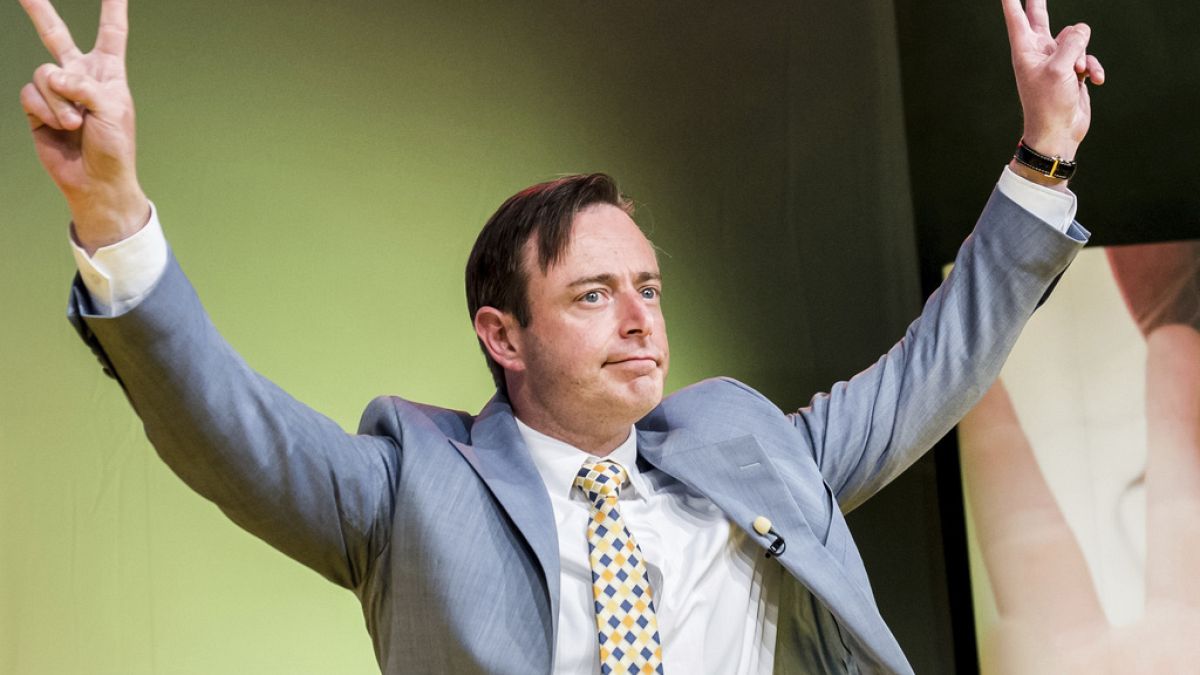Bart De Wever, the president of the New Flemish Alliance (N-VA), has been tasked with exploring coalition opportunities to form a government in Belgium. Following the surprising victory of N-VA over the far-right Vlaams Belang party in the recent EU elections, De Wever’s appointment is significant as N-VA remains the largest political party in Belgium. King Philippe met with De Wever and instructed him to identify parties interested in swiftly establishing a stable federal coalition. De Wever is expected to report back to the king on June 19th, after reaching out to potential coalition partners.
In the recent elections, Flemish nationalist parties dominated the political landscape, while Prime Minister Alexander De Croo’s liberal party suffered setbacks. Despite predictions that Vlaams Belang would emerge as the leading political force in Belgium, N-VA maintained its top position with an anticipated 22% of the votes. Vlaams Belang secured the second spot with a 17.5% share, followed by the Socialist Voruit party with approximately 10.5% of the votes. De Croo’s party, on the other hand, garnered less than 7% of the votes, prompting his resignation. The election results have set the stage for complex coalition negotiations due to Belgium’s linguistic and regional divisions.
Belgium is characterized by deep-seated regional identities, with the country divided along linguistic lines between francophone Wallonia in the south and Dutch-speaking Flanders in the north. Government formations in Belgium typically involve coalitions comprising parties from both regions. The presence of Vlaams Belang adds another layer of complexity, as mainstream parties have previously maintained a “cordon sanitaire” – a protective barrier aimed at preventing the far-right party from gaining power. The upcoming coalition negotiations are expected to be challenging, as parties navigate the intricacies of Belgium’s unique political landscape.
De Wever’s position as the head of N-VA puts him in a key role to shape the future government in Belgium. With his mandate to explore coalition possibilities and establish a stable federal government, De Wever’s decision-making will play a crucial role in determining the country’s political direction. The outcome of the negotiations will have far-reaching consequences for Belgium, as the country grapples with the aftermath of the EU elections and seeks to form a cohesive government that can address the diverse needs of its population.
As Belgium moves towards forming a new government, all eyes are on De Wever and the outcome of his consultations with potential coalition partners. The political landscape in Belgium is evolving, with N-VA emerging as a significant player and the traditional cordon sanitaire facing challenges. The upcoming weeks will be crucial in determining the composition of the new government and the policies that will shape Belgium’s future. With De Wever at the helm of the coalition-building process, the country is poised for a period of political transformation and realignment. The decisions made in the coming days will have a lasting impact on Belgium’s political landscape and the direction of its governance.










